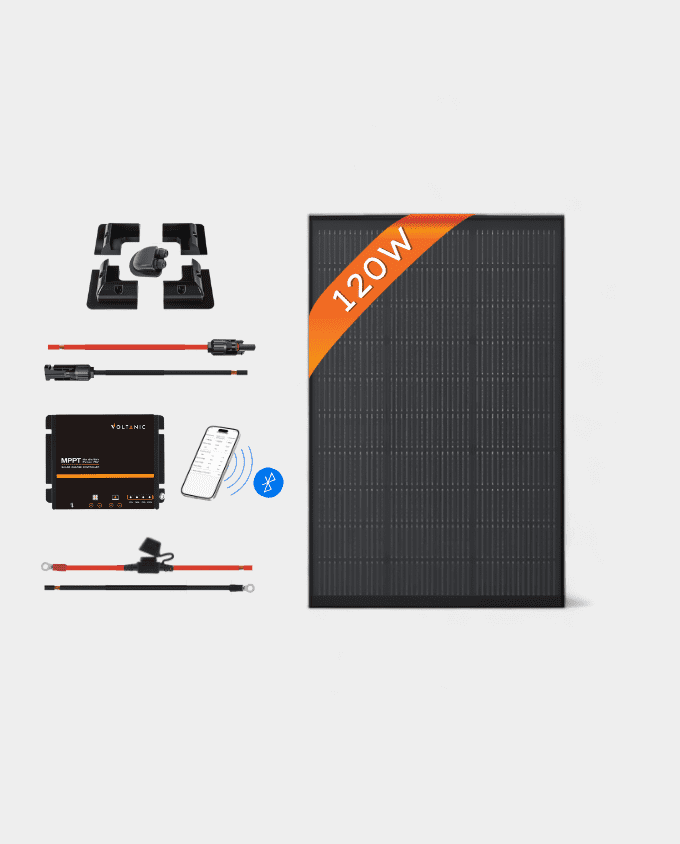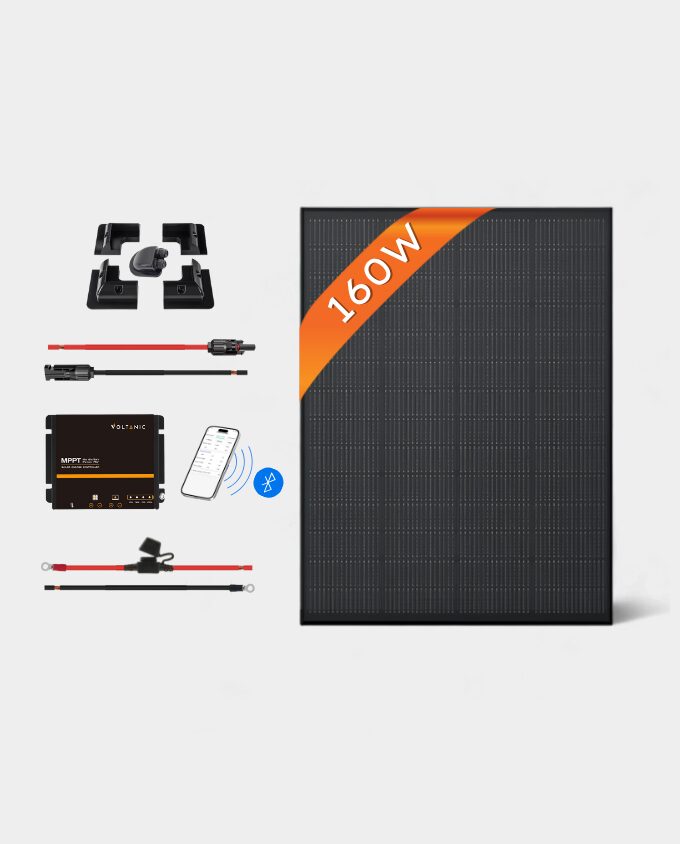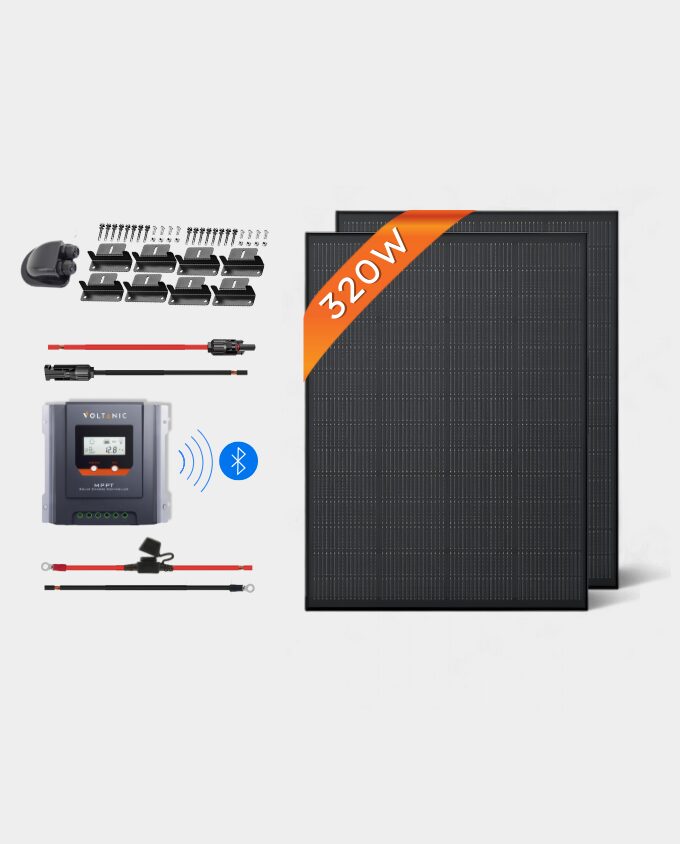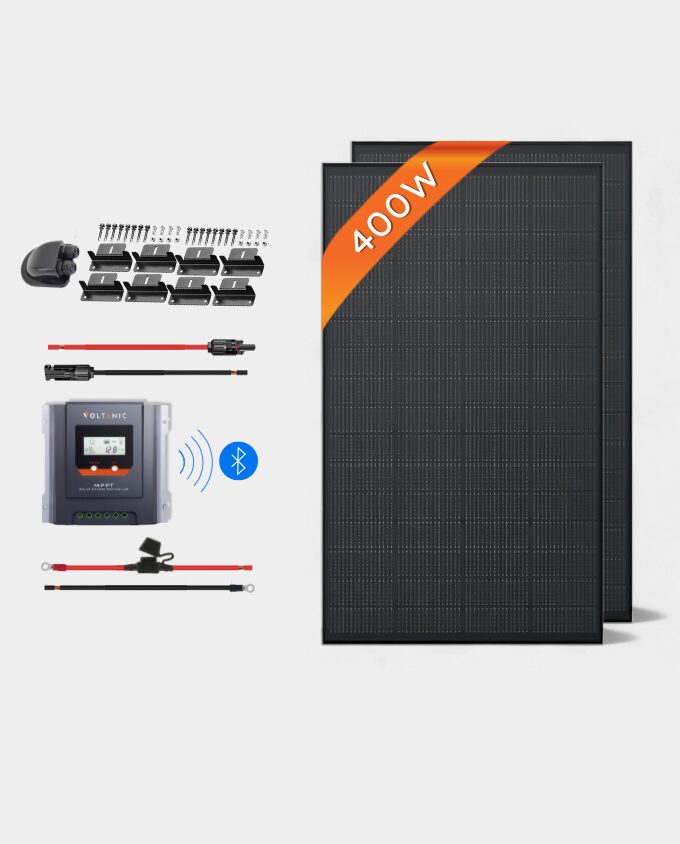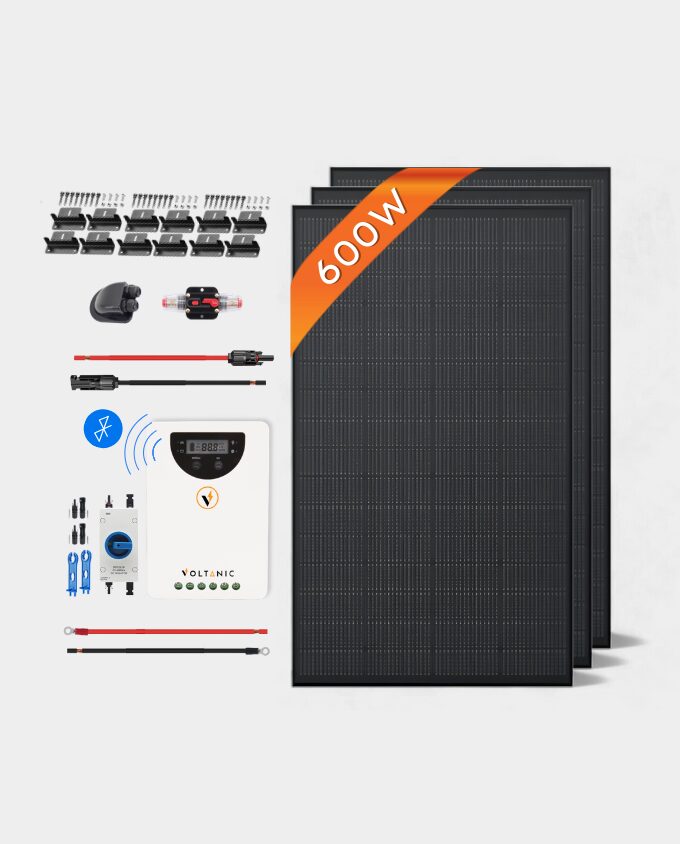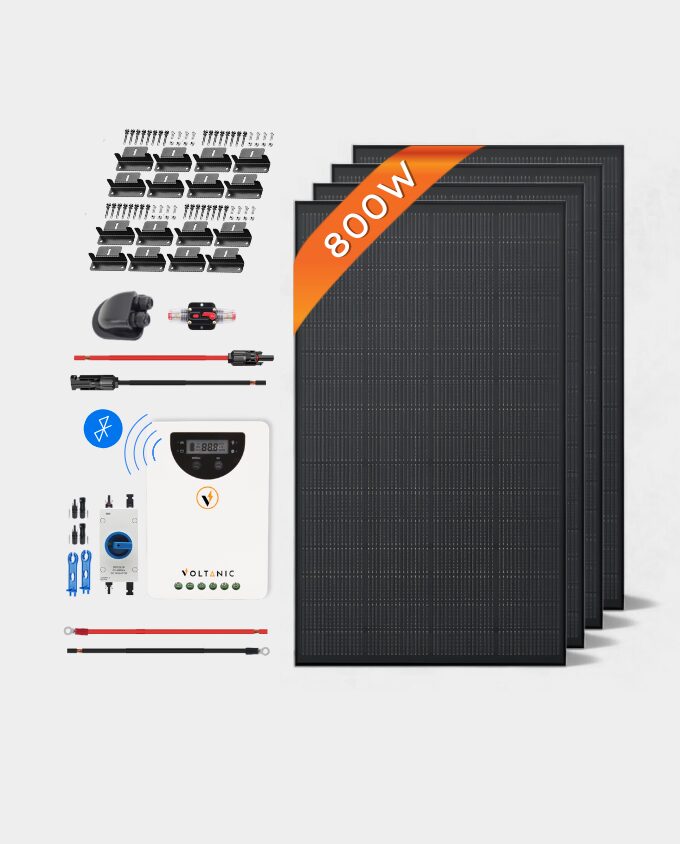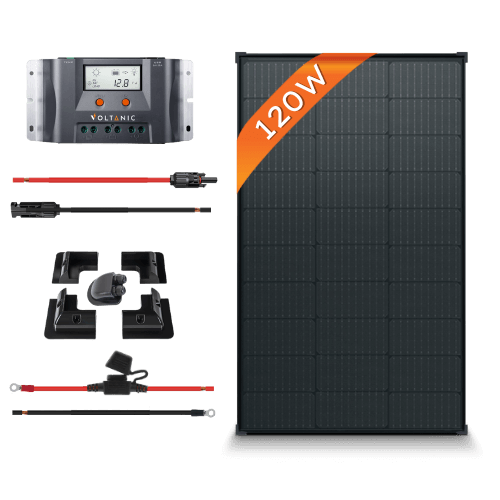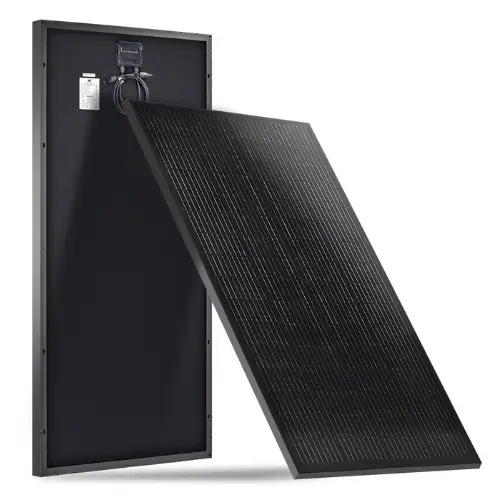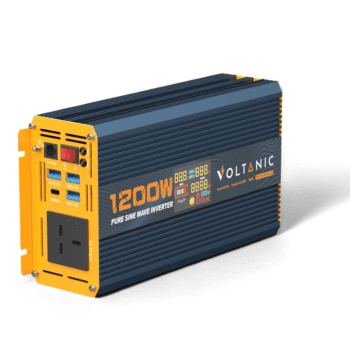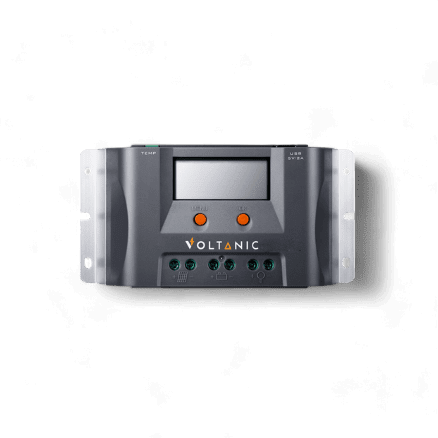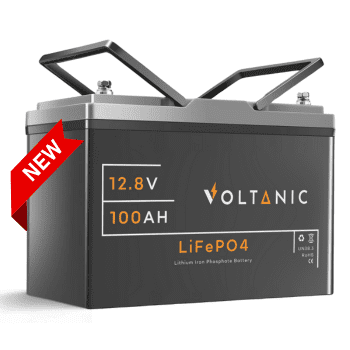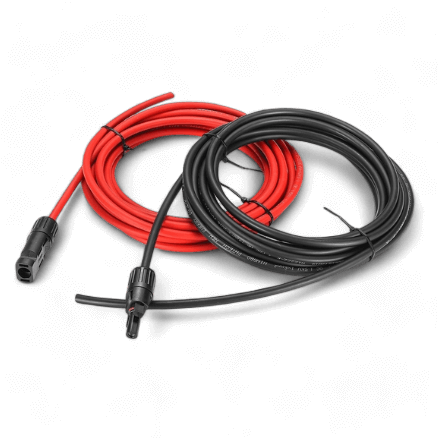
Solar Panel Kit for Sheds
Getting mains power to a shed can be expensive, time-consuming, and potentially destructive to your garden and home, often needing to run long cables from your home and digging up the garden.
Using solar power for your shed or garden office is a simple and convenient way to add power, without requiring on-grid services or a mains cable supply.
If you want to power a few lights and small devices like your smartphone, a 120-160-watt panel should be enough. But if you are also running a few 230V appliances, you’ll need at least 400W kits and above.
Best Sellers
✅ These kits are perfect for small energy consumers, including LED lights, laptops, phone charger, security cameras, ventilation fans, and small power tools.
✅ Highly customizable and easy to install (installation guide included).
From £159.00 Inc. VAT
From £179.00 Inc. VAT
From £199.00 Inc. VAT
From £269.00 Inc. VAT
From £329.00 Inc. VAT
Medium-Large Kits
✅ Several mounting and controller options are available. You also have the option to add a lithium battery.
✅ These kits are ideal for sheds requiring more substantial power, enabling the operation of larger power tools, workshop equipment, TVs, and even small appliances such as mini-fridges.
From £349.00 Inc. VAT
From £589.00 Inc. VAT
From £689.00 Inc. VAT
From £1,090.00 Inc. VAT

Have any questions?
We understand solar can be confusing. Contact us for any questions or to modify any kit to your needs.
BUY WITH CONFIDENCE

Whatsapp Support
We take a unique approach to customer service—chat with us anytime!

Easy Returns
Enjoy stress-free returns with no questions asked.

Reliable Warranty
Rest easy with our outstanding warranty coverage.
How many solar panels do I need?
- Setting up an EV charging port: Minimum 1600W solar system along with solar batteries
- Powering a self-contained granny flat: Opt for 800W-1200W
- Energizing a laundry/utility room: 600W-800W panels should be enough
- Lighting up a garden office: Consider 400W-480W
- Running essentials like a laptop, ligths, and phone charger: A 120W-160W kit would be suitable

Other FAQs
You typically won’t require planning permission for solar panels on your shed, except in cases where you reside in a listed building or a conservation area. However, if you’re considering permanent solar installations on your property’s grounds, including those not directly on the building, local authority consent may be necessary for any renovation work. In such instances, opting for portable DIY solar panels could be your best solution, or perhaps installing a few of them.
No, you don’t. Adding solar panels to your shed is completely legal, but you should prioritize ensuring that the roof can support the weight of the panels without compromising its safety. If your shed’s roof is sturdy enough and has an unobstructed view of the sun, you can install solar panels on it.
Yes, installing shed solar kits is a straightforward process if you’re comfortable using basic tools and following instructions. You will get a Kit Installation Guide with every kit to make it easier for you and you can always contact us if you are unsure about something.
Shed solar kits provide everything you require to start generating renewable energy, such as one or more solar panels, a charge controller, a battery, as well as all the necessary cables & mounting.
You have two options for shed solar kits: one with only MPPT charge controller, cables & mounting, providing you with the flexibility to purchase your battery, and the other option comes with a lithium battery, ready for installation.
With a shed solar kit, you have everything you need to generate power, and your only consideration is how much power you require.
Standard rigid 400W panels typically weigh between 20-23kg and occupy approximately 2 square meters each. When mounted on a frame for roof installation, they add even more weight. While a sizable, newly-constructed garden office may accommodate this weight adequately, smaller or older sheds—particularly those made of wood—may struggle.
Fortunately, for sheds and outbuildings that are less robust, flexible monocrystalline panels are now available. These panels offer a more affordable option, although they come with a trade-off: they are less efficient, boasting around 12% efficiency compared to the 20% efficiency of most rigid residential panels.

